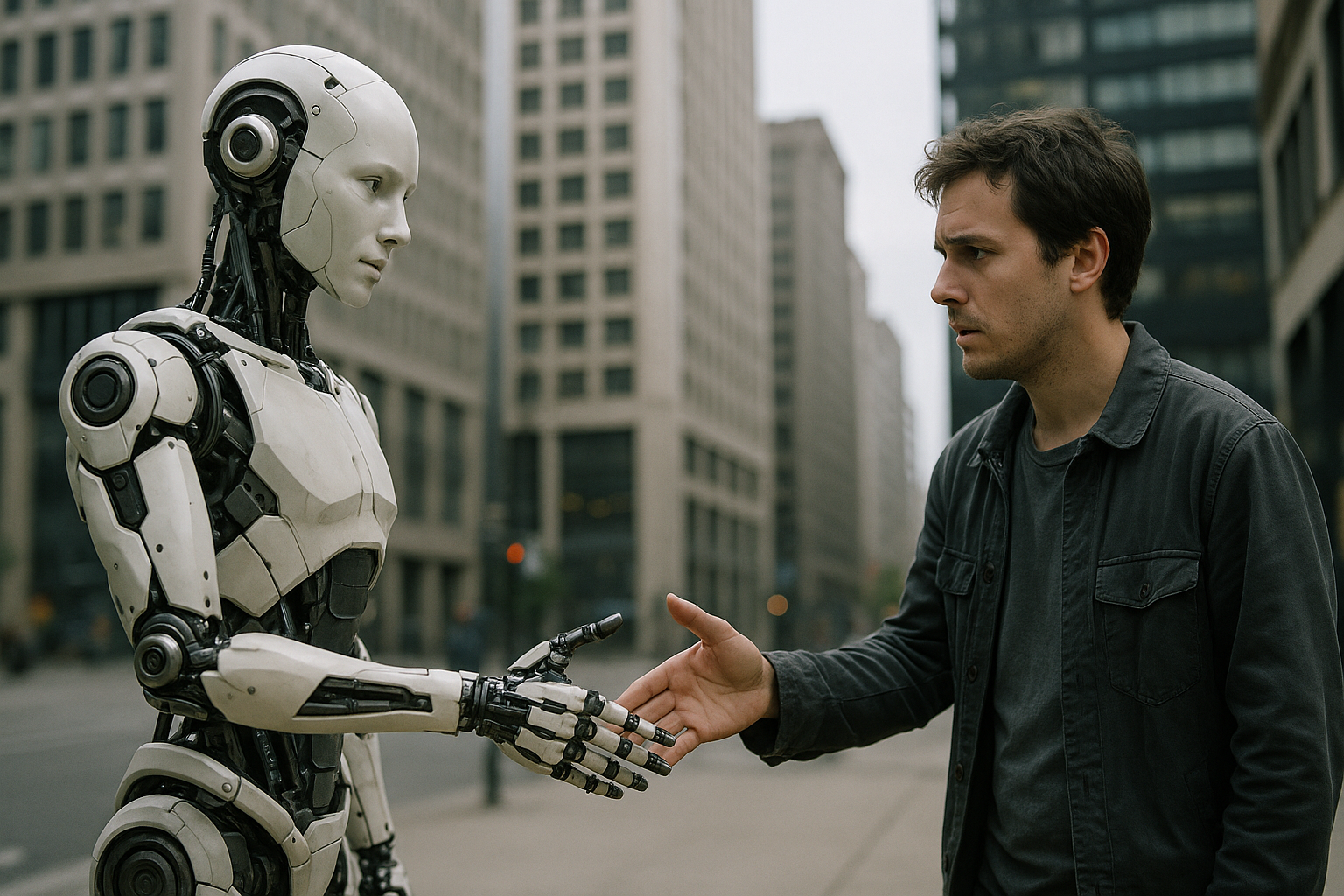What is AI, and why is it replacing jobs?
Artificial Intelligence (AI) is no longer just a futuristic idea—it’s already part of our everyday lives. From AI chatbots answering customer queries to robots assembling cars, businesses are using AI to cut costs, improve efficiency, and boost accuracy.
Unlike humans, machines don’t need salaries, coffee breaks, or vacations. They work 24/7 without fatigue, which makes them attractive to companies looking to save money and increase productivity.

Jobs AI Has Already Replaced:
1. Manufacturing and Factory Work
Robots now assemble vehicles, package goods, and manage warehouses, roles that humans once dominated. Automation in factories is one of the clearest examples of AI-driven job loss.
2. Customer Service
AI-powered chatbots and virtual assistants now handle FAQs, complaints, and support tickets, reducing the need for large customer care teams.
3. Journalism and Content Writing
AI tools like ChatGPT and automated news generators can create product descriptions, news briefs, and even blog posts. While they lack human creativity, they’re quickly becoming substitutes for routine writing.
4. Transportation
Self-driving cars, trucks, and delivery bots are threatening jobs in taxis, trucking, and delivery services. Although mass adoption is still in progress, this sector faces a high risk of automation.
5. Banking and Finance
AI algorithms now detect fraud, do KYC, approve loans, and provide financial advice, reducing the need for traditional bank staff.
Why AI Taking Jobs Isn’t Always Bad
The rise of AI doesn’t just mean job losses—it also means job transformation and creation.
When ATMs were introduced, many feared bank tellers would disappear. Instead, new banking roles in sales, customer relationship management, and financial services emerged. Likewise, AI is creating fresh opportunities in:
- AI and machine learning development
- Data science and analytics
- Cybersecurity and digital protection
- Robotics maintenance and support
- AI ethics, policy, and law
→ In short: AI eliminates repetitive jobs but creates higher-value roles.
Which Jobs Are Most at Risk of AI?
Experts agree that repetitive, routine, and predictable jobs face the highest risk. These include:
- Data entry clerks
- Telemarketers
- Cashiers
- Assembly line workers
- Some customer support roles
Meanwhile, jobs requiring creativity, leadership, empathy, and complex problem-solving are safer. Careers like teachers, doctors, leaders, artists, and therapists are difficult for AI to fully replace.
What AI Still Can’t Do (Yet)
-
- Creativity & Innovation – AI mimics patterns but can’t generate truly original ideas.
- Emotional Intelligence—Empathy, counseling, and human care remain irreplaceable.
- Complex Decision-Making – In uncertain or high-stakes situations, human judgment matters most.
- Relationship Building – Genuine trust and personal connections are uniquely human.
How to Future-Proof Your Career in the AI Era
Instead of fearing AI, the smart move is to adapt and evolve your skills. Here’s how you can stay relevant:
- Learn Digital Skills—Gain expertise in coding, AI basics, data analysis, and digital marketing.
- Keep Reskilling—Take online courses from Google, Coursera, or HubSpot to stay updated.
- Focus on Human Skills—Leadership, creativity, critical thinking, and emotional intelligence are AI-proof.
- Work With AI, Not Against It—Use AI tools to enhance your productivity instead of competing with them.
The Bigger Picture: Humans and AI Together
- Computers replaced typewriters.
- E-commerce disrupted retail shops.
- Now AI is reshaping the future of work.
→ The truth is AI won’t take all jobs—it will change how jobs are done. Those who adapt will thrive, while those who resist change may struggle.
Conclusion: Will AI Replace Humans Completely?
So, will AI take over human jobs? The answer is both yes and no. AI is already replacing jobs in manufacturing, customer service, and finance, but it is also creating new careers in technology, data science, and creativity.
The future of work won’t be humans vs AI, but humans working alongside AI. The winners will be those who reskill, adapt, and embrace change.
AI is here to stay. The question is, are you ready to grow with it?
